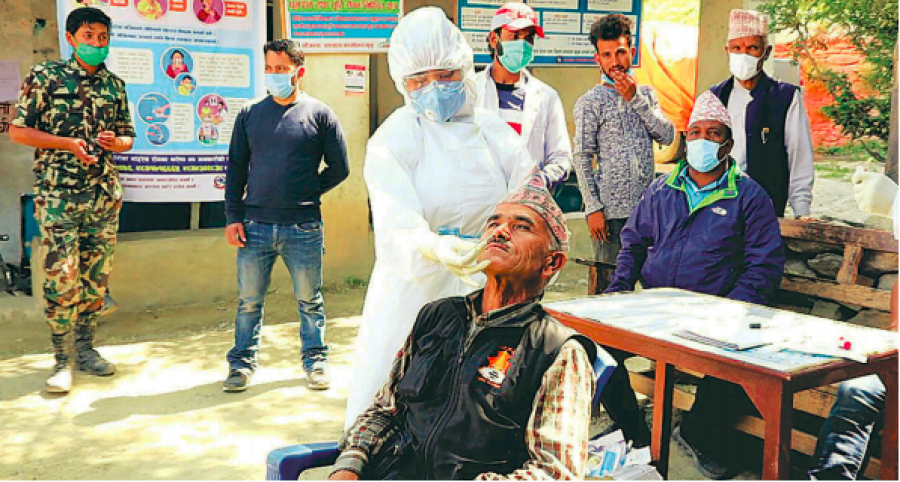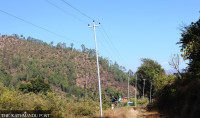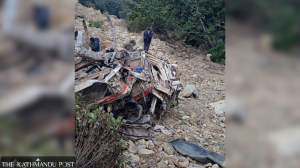Karnali Province
Covid-19 tests proving difficult in remote regions of Karnali Province
Local governments say geographical remoteness and human resources shortage have hindered them from running effective virus containment measures.
Chandani Kathayat
Geographical remoteness and shortage of human resources have hamstrung the coronavirus containment measures in Karnali Province.
There are 10 districts and 79 local administrative units in Karnali, which is the largest province in the country. So far 66 local units have reported coronavirus infections.
Officials say there is an increased risk of the virus spreading in other parts of the province, as mass testing at the community level has proved to be difficult. There aren’t enough human resources and the public access to health facilities in the region is too poor to enable the authorities to mount an effective Covid-19 response.
Karnali Academy of Health Sciences in Jumla district, for instance, has deployed one health worker at the District Health Office in Gamgadhi to collect swab samples for coronavirus tests. People residing in remote areas of Jumla and other districts in the province have no option but to visit the health office to undergo tests.
"There is no road connectivity to most of the rural villages so our health workers haven’t been able to go to the villages to collect swab samples,” said Dr Mangal Rawal, director at the academy. “The provincial government sends helicopters to remote areas to collect swab samples and the academy sends health workers to accessible villages.”
The Ministry of Social Development in the province has said that coronavirus infections were reported in 2,372 people from 66 local units in Karnali as of Monday. Narayan Municipality in Dailekh district has the highest number of infections with 303 cases.
"Only those people who can reach the health office are undergoing tests. Those living in far-flung corners of Karnali Province are not getting tested,” said Suntala Rokaya, the deputy mayor of Chhayanath Rara Rural Municipality in Mugu district.
Health workers have warned that community transmission of the coronavirus in the province is a serious possibility, as mass testing in remote villages is proving to be difficult.
A swab sample collection clinic held in the upper region of Dolpa district recently saw participation from only two rural municipalities, Mudkechula and Jagadulla. The people in six rural municipalities could not participate.
"There is alternative but to use helicopters to reach the region,” Dr Sijan Rawal, chief at the Dolpa District Hospital told the Post. “Most of the swab viral transmission medium (VTM) kits are lying unused because we could not organise the swab collection drive in all local units.”
Lack of human resources have also affected the Covid-19 response in Karnali Province.
“We do not possess the kind of human resources required to conduct a swab collection campaign,” said Bishnu Bahadur Lama, chairman of Namkha Rural Municipality in Humla district. “There are no health workers deployed here to collect swab samples of coronavirus suspects.”
This problem is not limited to Namkha alone. The local units have also failed to run swab collection and mass testing campaigns.
Social Development Minister Dal Rawal said the provincial government does not have any immediate plan to collect swab samples in remote parts of the province.
The government is focusing on other containment measures, he said.
"We will soon add oxygen plants and ventilators in isolation wards in different districts. We will also appoint additional human resources and provide necessary training to the existing workforce," said Rawal.




 11.43°C Kathmandu
11.43°C Kathmandu












